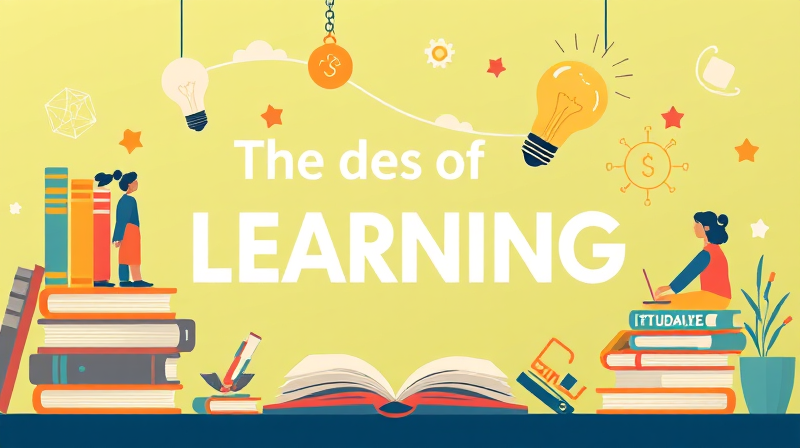In today’s digital era, countless complimentary study materials are available to transform your educational experience. With technology breaking down traditional barriers, students and educators alike can now access well-curated, high-quality resources without spending a dime. This guide explores a variety of methods to find digital study materials that cater to all educational needs and preferences.
Whether you are a high school student, college enthusiast, or an educator seeking supplemental materials, the digital landscape brims with diverse platforms that simplify learning. The key is to know where to look and how to leverage technology effectively to extract the best content.
Leveraging Open Educational Resources (OER) and MOOCs
Open Educational Resources (OER) offer a treasure trove of meticulously designed, peer-reviewed academic content. For example, platforms like OpenStax offer an extensive library of over 70 textbooks covering a multitude of subjects while enabling students to develop a deeper understanding without incurring high textbook costs.
The wealth of OER extends beyond textbooks. Websites such as OER Commons curate lesson plans, homework assignments, and assessments that educators can integrate into their curriculum. These resources are invaluable to those who desire a comprehensive, cost-effective educational experience.
Another avenue to explore is Massive Open Online Courses (MOOCs). Free courses available on platforms like Coursera bring elite academic instruction directly to your screen. While certain premium features may involve fees, the vast majority of course content can be accessed for free. These courses include subjects as varied as Python programming and data science. MOOCs make high-caliber education accessible for anyone with an internet connection.
Enhancing Engagement Through Videos and Interactive Tools
Educational video platforms have revolutionized the traditional classroom environment. Channels like CrashCourse, Khan Academy, and SciShow are at the forefront of making learning visually appealing and more comprehensible. The use of animation, illustrative examples, and compelling narratives turns complex topics into digestible segments that aid memory retention and conceptual understanding.
Beyond videos, interactive learning tools are becoming increasingly popular. Quizlet, for instance, allows students to create and share custom flashcards that transform rote memorization into a productive exercise. Its gamified features turn studying into an enjoyable challenge that drives deeper engagement and encourages consistent review. Engaging with such interactive platforms not only makes studying more fun but also caters to different learning styles.
- OpenStax and OER Commons for textbooks and lesson plans
- Coursera and free MOOCs for a diverse range of free courses
- YouTube channels such as Khan Academy and CrashCourse for visual learning
- Quizlet and similar tools for interactive study sessions
Diving Into Digital Libraries and University Resources
Digital libraries offer an enormous repository of literature waiting to be explored. Project Gutenberg is one such instance, with over 70,000 free e-books that feature classic literature and public domain works. Moreover, platforms like Google Books facilitate access to scanned copies of rare texts, documents, and periodicals. Such resources are excellent for both casual readers and diligent researchers.
Complementing these digital libraries are university open courseware platforms. MIT OpenCourseWare, for example, provides students with access to a comprehensive range of course materials from over 2,400 courses including video lectures, assignments, and exams. These resources empower self-learners to engage with advanced concepts at their own pace and enrich their academic portfolios.
Exploring Specialized Platforms for Coding, Language, and Subject-Specific Study
For those wishing to venture into the realm of coding, websites like freeCodeCamp and Codecademy provide extensive tutorials spanning various programming languages. freeCodeCamp offers an impressive 3,000 hours of coding exercises, enabling learners to deeply comprehend programming concepts through hands-on projects. Meanwhile, Codecademy offers introductory courses in HTML, CSS, JavaScript, and Python that equip beginners with essential programming skills.
Language learning too has undergone a transformation with tools such as Duolingo. This platform offers an immersive and playful learning experience in over 40 languages, making language acquisition both accessible and enjoyable. The gamified lessons and interactive exercises ensure that practice and repetition become an integral part of the learning habit.
Subject-specific platforms also play a significant role in catering to niche interests. For instance, Hippocampus provides a multimedia approach to subjects such as economics, history, and even religion. Meanwhile, ReadWorks dedicates itself to enhancing reading and literacy skills for students, providing tools that are invaluable for both educators and learners.
By exploring these varied resources, you can customize your study plan to suit your academic needs. Each platform offers unique benefits that contribute to a holistic educational experience. Embracing these complimentary digital study materials empowers you to take control of your learning journey, irrespective of geographical or financial boundaries.
In conclusion, the ever-expanding universe of free digital study materials is not just a boon for students on a budget—it is a gateway to lifelong learning. These resources provide the requisite tools to excel academically, stimulate intellectual growth, and foster a spirit of curiosity. With just a few clicks, you are handing yourself the keys to a world of knowledge. Seize this opportunity to redefine your educational journey and embrace the future of learning.








